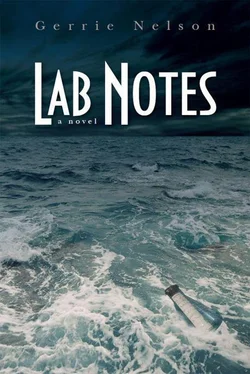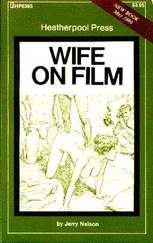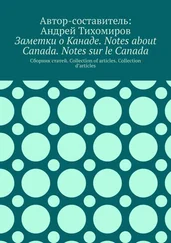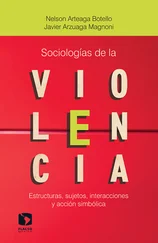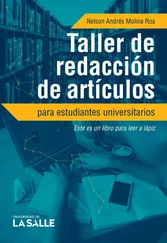Sara said, “He had apparently hacked into BRI’s computers and/or Bellfort’s home computer to get the banking information.”
She added, “He was one smart fella, and clever too. He knew the next occupant in the treehouse would be a scientist—someone who wouldn’t rest until he or she solved the puzzle of the handwriting on the wall.”
Sara theorized that Harry Lee’s project at BRI was not quite finished when, through his spying, he discovered Bellfort was going to sell it out from under him. So he planned to move on and take his technology with him. But he wanted the next treehouse resident to find his evidence, build on it, then expose whatever Bellfort and Everly were up to.
Sara went on: “We did a retrograde search to find out who had been wire transferring large amounts of cash into those accounts. Bellfort and Everly frequently received identical deposits on the same dates.”
Diane knew she shouldn’t have been surprised when Sara informed her that the depositor was TekTranz out of Germany. But somehow that bit of information sent her into emotional overload. She sank onto a kitchen stool, leaned on the bar and propped her head in her hand.
She was now certain that Vincent’s death was linked to all of it, even though there was still a disconnect between Harry Lee’s death, Everly and Bellfort embezzling from BRI and Gabriel murdering Vincent. She wouldn’t rest until the motives were clear and everyone responsible had been exposed.
Diane forced her focus back to the telephone and Sara’s voice.
“Leonard Everly denied ever meeting Dr. Harry Lee when he was in Asia. But then we hit him with proof of the matching dog hairs—we neglected to tell him that the hairs were tangled in the Velcro in Dr. Lee’s jacket, along with some sweater fibers.
“In light of the evidence, of course Everly changed his story. He said that Harry Lee was peddling his technology in Hong Kong and had contacted him. He said that he and Dr. Harry Lee had never met before, but Harry had heard some good things about his marketing abilities at BRI. He told us that Dr. Lee was adamant that Raymond Bellfort was not to know of their meeting. Everly agreed to keep it confidential and flew over to Hong Kong to see him after completing his BRI business in Taipei.
“Everly said he met Dr. Lee at a wine bar in the SOHO district of Hong Kong. He insisted that shaking Dr. Lee’s hand and sliding onto a barstool beside him explains the dog hairs on Harry Lee’s jacket.
“He said that over a couple glasses of wine they discussed the possibility of finding a buyer for Harry’s technology and what his commission would be. But no deal had been struck yet.
“According to Leonard Everly, at 7 p.m. Harry Lee said he had to leave for a dinner engagement. He gave Everly his business card and they parted amicably outside the bar. That was the night Dr. Lee was killed.”
“By the way,” Sara added, “Leonard Everly’s arrest has been kept under wraps while the various authorities investigate further. They’re trying to connect the dots between Everly’s probable embezzlement from BRI and Harry Lee’s murder.
Sara added, “Considering the technology involved, we suspect this goes way beyond one man’s greed. So keep it to yourself. David Crowley’s group knows, of course. But the authorities want to question Bellfort before Everly’s arrest becomes common knowledge.
“Speaking of your illustrious boss, he’s been gone quite awhile. It makes me wonder whether he’s vacationing or hiding out.”
Outside the treehouse, the rain came down in torrents. A rental SUV cruised by, barely making a splash. The driver stopped near the boat ramp, backed into a parking space and cut the engine. Then he lit up a cigarette and watched.
“It all began along the Silk Road, which I’m sure you know was the ancient trade route between China and the Mediterranean. Travelers and merchants needed rest stops, so tea houses began springing up. Over several centuries, various snacks were added to teahouse fare, giving birth to the tradition of dim sum.”
At that moment a waiter wheeled a cart of bamboo steamers up to the table, interrupting Mr. Lee’s discourse.
While Hu Lee discussed the selections with the waiter, Diane sipped her green tea and scrutinized the man who had taken a one-hour flight from Dallas to see her. He had phoned last evening and they agreed to have brunch. Dim sum had been his preference.
He landed at Hobby Airport at 10:30 in the rain. She picked him up and drove to the restaurant on Houston’s Southwest side.
Hu Lee was a handsome man, probably in his middle fifties. He had grown up in Hong Kong, but was schooled in the U.K. His accent was a cultured blend of Chinese and British.
His khaki slacks, boating shoes and rolled shirtsleeves signaled he was not always the buttoned down banker his voice suggested over the telephone. Also, there was that lock of black hair that dangled rakishly over his forehead; he obviously didn’t feel compelled to smooth it back.
Finally, the waiter and his cart rattled toward the next table. Hu Lee picked up his chopsticks. “Allow me,” he said.
He served an assortment of dumplings, steamed buns and deep-fried spring rolls from the lazy susan in the center of the table onto Diane’s plate.
The restaurant was packed with parties of six or eight people around each table. The atmosphere was a potpourri of smells and sounds. Patrons shouted orders, trays clattered and dishes clinked in celebration of Sunday brunch.
Diane and Mr. Lee had a round table for six to themselves. They sat in chairs next to each other in order to carry on a conversation. So far they had only discussed the weather, Tung Chen and his father and dim sum.
Each time Diane turned his way to make a comment, she saw Hu Lee’s eyes assessing her. It was not the look of a man who was checking out a woman, appreciating her assets, noting her flaws. It was more of an intense animal watchfulness—almost as if he was gauging whether or not he could trust her with his life.
Originally, she had asked Tung Chen and his father to intercede with Mr. Lee on her behalf, hoping that Harry Lee had given his uncle information about BRI that might inform her Peruvase search. But now it was obvious Hu Lee had his own agenda.
She wanted to shout out: “What’s this about? Surely they have dim sum restaurants in Dallas—or for that matter, in Hong Kong. What are you doing here?” But she continued quietly wrestling with her chop sticks, biding her time.
Finally he said: “Do you know anyone named Leo?”
“No… Why?”
Mr. Lee laid his chop sticks across his plate, placed his napkin on the table and turned to her. And under cover of the dim sum commotion, he told her the story he had been too frightened to tell the Hong Kong authorities or the CIA.
Hu Lee’s nephew Harry, upon hearing rumors in the science community about technologies that came out of BRI and disappeared, began spying on Raymond Bellfort. He hacked into Bellfort’s computers and even watched his house through his telescope.
Harry Lee was deaf as a child, but had corrective surgery in his teens. In the intervening years, he had developed an exceptional ability to read lips.
While working at Bayside Research, he would spend entire evenings watching through his telescope when Bellfort entertained people on his patio. That’s where he saw the man that Bellfort called “Leo.”
Leo and Bellfort were planning to sell off Harry’s technology before it was completed, then fire him. They talked about it sparking a lot of interest in the Middle East—the potential buyers did not want to see such a powerful biometric device used internationally.
Читать дальше
